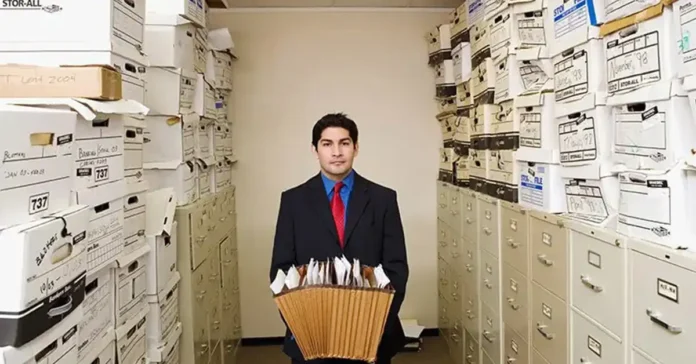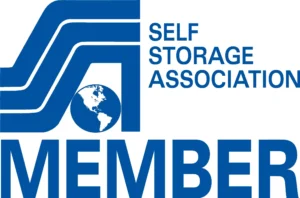Efficient document storage in self-storage units is crucial for maintaining organization and ensuring easy access to essential files. Whether decluttering your home, undergoing renovation, or needing extra space, self-storage offers a practical solution for managing documents. Start by assessing your needs and choosing the right type of self-storage unit. Utilize utility storage solutions like filing cabinets and box storage to keep documents sorted and protected.
Label each box clearly to simplify retrieval and prevent clutter. Proper organization enhances accessibility and safeguards against damage or loss. With these tips, you can create an efficient document storage system that supports a clean, organized space and streamlines your storage needs.
Things to Consider for Document Storage
1. Label and Review
Maintaining compliance and having evidence, such as pay stubs and receipts, when needed, depend on safely storing old documents. Documents, however, frequently do not need to be maintained after several years. A demolition date on each document makes it simpler to manage older files and guarantees that you are making beneficial use of your archive space. Whenever kept in a self-storage facility, be sure to inspect these as well periodically.
Get started with this project by separating business and personal documents. Then, each category will be divided into three piles: Keep, Shred, and Recycle.
- Keep – These are the important documents you need to keep either permanently or until it is time to dispose of them.
- Shred—These are sensitive documents and materials you no longer need but should destroy to protect privacy.
- Recycle – These documents are not sensitive and can be delivered to a recycling facility.
2. Store your documents with accessibility in mind
If you need a place to save your records, consider using a self-storage facility instead of an offsite data centre. Self-storage has several advantages, including reduced costs, greater flexibility, and improved safety from natural calamities. Additionally, if you select a reliable facility like Self Storage India, you can relax knowing your papers will be carefully saved and protected.
Choose a cost-effective option for storing all types of documents first, though, before you start storing your own. “Document storage” is the most common sort of storage you will find at most self-storage facilities. You can save any document using this storage, including tax returns, insurance policies, financial statements, and legal documents. You can organise your documents using document storage to make them available whenever needed.
3. Protect your paper documents from wear and tear
One of our most valuable resources is paper documents. They contain knowledge that facilitates efficient communication, work completion, and record-keeping. However, paper documents can be harmed in various ways over time. These include use-related deterioration, storage issues, and environmental variables. Paper documents can potentially sustain harm from excessive handling or poor storage.
Consider archival storage options for your paper documents, such as acid-free boxes, plastic sleeves, and polypropylene envelopes, to prevent them from being harmed. These materials shield the paper from moisture and dust while assisting in preventing fading, yellowing, and smearing. Additionally, consider keeping them away from light sources like windows and fluorescent lights in a cool, dry location. If it is feasible, store them in a climate-controlled self-storage facility.
If you file them, correctly identify them and place them in protective covers before putting them away. The contents of such folders could be harmed if you do not.
4. Keep your documents safe from natural disasters
Ensure you have considered any potential risks related to natural catastrophes if you store crucial papers in a self-storage facility. If you keep important documents anywhere that are not inside a secure structure, you could be in danger from flooding, earthquakes, and fires, to name a few.
Keep them off the ground and high. According to the Journal of Emergency Management, flooding can enter a building up to five times faster than outside. Therefore, it makes sense to preserve documents safe.
Choose a fire-resistant container. Paper documents should ideally be kept away from home in a fireproof container because it can take firefighters several minutes to reach a burning structure. Online, several solutions are available, including a waterproof box. Important documents like birth certificates and tax returns can be stored in safe deposit boxes while you search for a better place for them to live.
Additionally, a lot of storage facilities provide additional amenities like:
- 24/7 video surveillance.
- Climate control.
- Pass-code entry gates.
- Individual locks and alarms.
Self-storage is an effective, cost-effective, and safe document storage solution. Security at self-storage facilities is more dependable than ever with the technology available. Constant patrolling by security guards and pest-controlled units offer surety and security for your precious items. Further, flexible month-to-month lease enables you to upgrade to a bigger location as your company expands and your personal belongings accumulate. The same flexibility permits you to downsize if it turns out that you require less space in the future. Choose a safe and secure facility like Self Storage India for your documents and more.
Final Words for Storage Documents
In conclusion, efficient document storage in self-storage units is essential for maintaining order and protecting critical files. By utilizing utility storage solutions and box storage, you can keep your documents organized and easily accessible. Proper labelling and systematic arrangement prevent clutter and ensure you can find what you need quickly. Self-storage offers a practical and secure solution, whether you’re decluttering, renovating, or simply managing excess paperwork.
Investing time in setting up an organized document storage system will enhance your efficiency and safeguard your documents from damage or loss. With these strategies, you can effectively manage your storage needs and enjoy a well-organized, clutter-free environment.
FAQs
A: Start by organizing documents into categories. Use sturdy, labeled boxes to protect them from dust and damage. Ensure all documents are dry before storage.
A: Clearly label each box with its contents and date. Use waterproof markers and include a brief description to identify the documents inside easily.
A: Use vertical space by stacking boxes and using shelving units. Opt for compact, uniform-sized boxes to efficiently utilize the storage area.
A: Use acid-free, archival-quality boxes to prevent deterioration. Choose sturdy, stackable boxes that offer protection from moisture and physical damage.
A: Periodically review your stored documents, at least once a year, to ensure they remain organized and to update or remove outdated files.
A: Opt for climate-controlled units to protect documents from extreme temperatures and humidity. Ensure the facility offers secure access and monitoring.
A: Store sensitive documents in secure, locked boxes. Consider using fireproof and waterproof containers for added protection against disasters.
A: Yes, self-storage units are suitable for long-term document storage. Ensure proper organization and protection to maintain document integrity over time.
A: Sort documents into categories, such as financial, legal, and personal. Use folders or binders within boxes to further organize and make retrieval easier.
A: Keep an inventory list of box contents and their locations. Store frequently needed documents in easily accessible boxes and maintain a transparent labelling system.








